- Home
- Cynthia Ozick
Antiquities Page 10
Antiquities Read online
Page 10
So I turn again and again to the riddles in my father’s cigar box. Not to pass the time, as old people do, but out of an insistence that grapples me more and more. I am hypnotized, if you will, by a certain passage in the deposition: the capsule of all. The significant thing, the significant thing. It shakes me, it unmans me. I mean to penetrate the intent of those implausible traders in search of an implausible goal. (And wasn’t my father just such a trader?) Is it, the significant thing, made of clay, of stone, what form does it take, is it weighty, is it slight, is it palpable at all, like a body or a bird? Or is it a fanatical dream? Then whose?
Or is it a mighty idea?
* * *
*
May 30, 1950. Memorial Day. Since henceforth I will have no reader, I need not say by what means I have disposed of my memoir, and my father’s notebook with it. Enough to know that they are, like all things treasonous, banished.
The deposition itself I have concealed where only my son is likely to find it when he comes to search among my personal effects to choose how I am to be clothed for my burial. (There will be no funeral.) Hence I can freely disclose in these final reflections the site of its unearthing: a cigar box beneath the innumerable socks accumulated in a crowded drawer.
I have not been well for many weeks. The doctor who serves this place belittles my complaints. Not illness, he asserts. Social malaise, that despicable cant. No letters come, and except for the obituaries (so many of my peers, familiar names) I have lost all concern for the newspaper’s cataclysms.
I have had a single visitor. Hedda, uninvited. Surprisingly, on the advice of the defectors that there were still jobs to be had, she is now employed as one of the newer cooks at the Oyster Bar. She was eager to tell that she had lately observed a Judge Greenhill at a table with a view of the ramp, a lebhaftig and talkative old man, and can it be true that I knew him as a child at the Academy? (I did see that Ned’s wife died early in April.) She brought me a pastry, charmingly wrapped. I am afraid our conversation was sparse. She wished me well and departed.
But I cannot eat something so unbearably sweet.
* * *
*
I give this writing no date. I am unsure of the date. I dislike putting on my shoes. The windows cannot be opened. There are no fans here in summer. The air conditioning blows cold.
I think I know the significant thing. Ben-Zion Elefantin too knows the significant thing.
Only the two of us know.
Not in the heavens, not in the sea, not a god made of stone buried in the earth. A temple in a lost kingdom of storks on the Nile, is that what it is?
Only the two of us know.
We two kings.
Acknowledgments
For entry into the world of Sir Flinders Petrie, I am indebted to the archaeologists Rachel Hallote and Alexander Joffe, from whom I learned that though stories can never generate pots, pots will always tell stories.
—C.O.
A NOTE ABOUT THE AUTHOR
Cynthia Ozick, a recipient of both the PEN/Nabokov Award and the PEN/Malamud Award for fiction and a National Book Critics Circle winner for criticism, is the author of Trust, The Messiah of Stockholm, The Shawl, The Puttermesser Papers, and many other works. She lives in New York.
What’s next on
your reading list?
Discover your next
great read!
Get personalized book picks and up-to-date news about this author.
Sign up now.

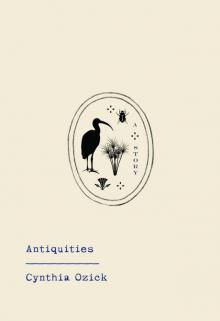 Antiquities
Antiquities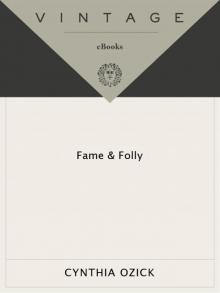 Fame & Folly
Fame & Folly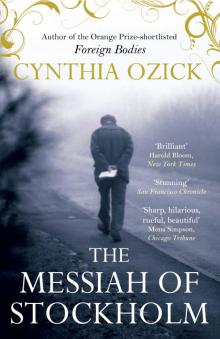 The Messiah of Stockholm
The Messiah of Stockholm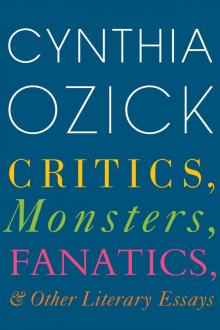 Critics, Monsters, Fanatics, and Other Literary Essays
Critics, Monsters, Fanatics, and Other Literary Essays Heir to the Glimmering World
Heir to the Glimmering World The Din in the Head
The Din in the Head Dictation
Dictation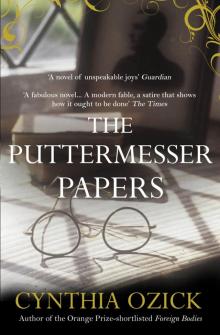 The Puttermesser Papers
The Puttermesser Papers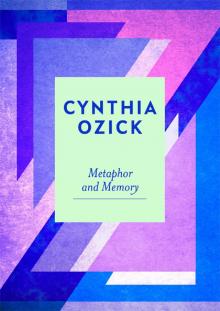 Metaphor and Memory
Metaphor and Memory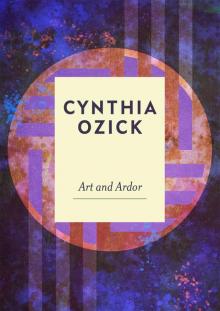 Art and Ardor
Art and Ardor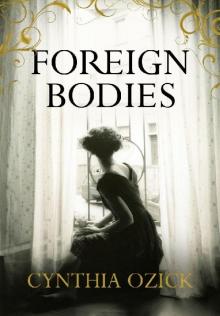 Foreign Bodies
Foreign Bodies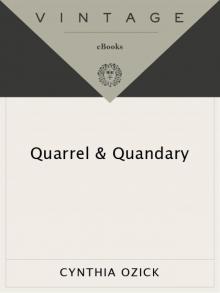 Quarrel & Quandary
Quarrel & Quandary